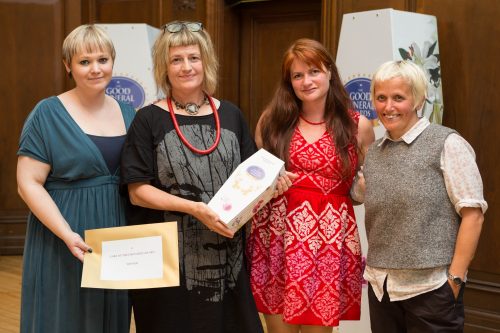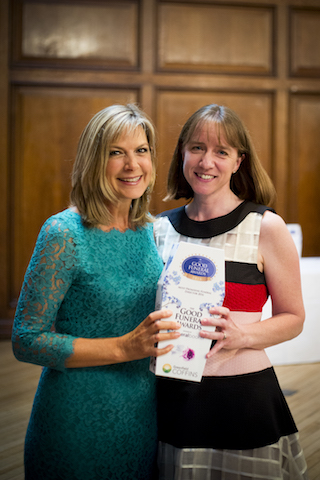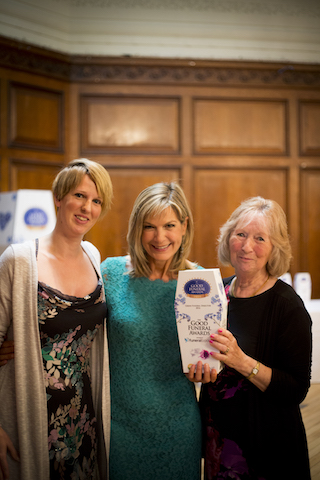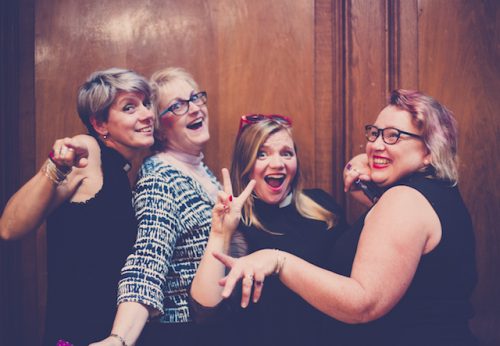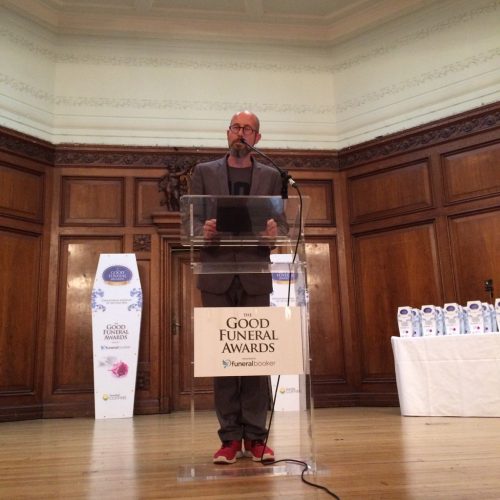There’s something afoot in funeral world. Letters have been pinging into the inbox of funeral directors around the country advising them of a shiny new entrant into the world of undertaking.
“Over the next few days you may read about a new funeral company called Hospice Funerals LLP. It has been set up by St Margaret’s Hospice of Somerset in order to allow local hospices to extend their care to the local community by providing a caring, transparent and personal funeral service..”
A joint operation between St. Margaret’s Hospice and Memoria, this partnership is, at first glance, a match made in heaven.
Expert end of life carers join with expert provider of state of the art crematoria and low cost funeral services to offer communities across the UK a new, better alternative when it comes to funeral arrangements.
But let’s take a closer look.
Memoria’s CEO, Howard Hodgson, is well known in the funeral world. Here’s a little background, taken from an article by Tony Grundy in 2015:
‘For example, in a classic UK television documentary some years ago, former undertaker and entrepreneur Howard Hodgson told of how he led the transformation of the industry through a combination of acquisition, consolidation, value innovation and cost management. In his book ‘How To Become Dead Rich’ Hodgson set out his vision of how to run his funeral business as economically as possible, with an efficient set of local operations providing up to several funerals in a day, making much better use of facilities such as cars, storage and sales facilities. Alongside this he pioneered a more extensive range of services, optimising the average price.
This hugely widened operating profit margin and increased return on net assets. This vision became the model of the Great Southern Group, which Hodgson sold out to and which, after a period of being owned by US company Service Corporation International, is now called Dignity, one of the UK’s top players. These changes also reduced competitive rivalry in the UK market, where a higher proportion of the market had previously been fragmented, made up of ‘mom and pop’ independents.’
St. Margaret’s Hospice announced their plans earlier this month, without mentioning their new partner. The role of funeral director was advertised at £36,000 plus car. One of their existing charity shops is being converted into suitable premises in Taunton – a town in which there are already 12 other undertakers.
The Hospice Funerals website states:
HOSPICE FUNERALS’ VISION
To provide all hospice communities with the choice and experience of hospice funeral services that uniquely reflect the dedication, warmth and reputation of the hospice movement – an extension of exemplary hospice care – caring, transparent and personal.
HOSPICE FUNERALS’ MISSION
To bring choice, quality and affordability to families in our communities, so that they can celebrate the lives of loved ones with a unique and individual funeral that respects their wishes. This is achieved by only engaging highly trained staff with unwavering attention to detail and compassion – so ensuring a caring, transparent and personal funeral to all whatever their budget.
This sounds absolutely wonderful.
Although the top benefit for hospices electing to become a provider listed in another part of the website is:
‘Participation in a new enterprise that will deliver sustainable and growing income going forward and thus helping to bridge the considerable funding gap that stands between government funding and the annual needs of the hospice.’
And in the brochure for ‘hospice partners’ it clearly states:
The partnership will operate as a franchise scheme. These are the facts:
- Hospice Funerals signs an agreement with the partner hospice (the partner Franchise Agreement – samples available)
- The hospice partner will be entitled to operate exclusively within the defined area
- A hospice partner can acquire more than one area if it so wishes
- Hospice Funerals will give each partner a demographic survey providing a death profile of the granted area and will be able to advise the partner on this issue
- Hospice Funerals will issue a list of products and prices that the partner will need to purchase in order to create their funeral service.
- The hospice will be supported to deal directly with these suppliers, shop fitters ad other trades. This means that Hospice Funerals is not involved in the invoice chain and so is making NO margin on the set up of the unit.
- Hospice Funerals support you with a turnkey service and are on hand throughout the set up period, signing off the premises when complete.
- Thereafter, the location will be inspected prior to opening and all snagging signed off.
- Hospice Funerals will select, train and manage the partner’s funeral staff, while being accountable to the partner.
- Memoria will also carry out the majority of funeral administration for the partner.
- Memoria will also install and teach the partner’s funeral director how to operate a bespoke software system for making funeral arrangement.
Hmm. So, perhaps not quite so in line with the hospice movement set up to look after the dying and their families by Dame Cicely Saunders then.
It’s a franchise scheme, dressed up in the hospice’s clothes, making money for both the ‘hospice partner’ and Memoria alike.
Here’s what we think.
It’s hard to criticise the idea of the much loved local hospice continuing to care for those who have died after death (albeit charging for this part of their service, while everything else until the last breath is taken has been free of charge.)
Why wouldn’t you choose to use them?
Hospices are pillars of the community after all, caring for the dying in the most wonderful way. And your money will be going to help support this admirable cause instead of lining the pockets of those men in black, the stereotypical undertakers.
It’s easy to see what a brilliant idea this is – piggybacking on the reputation and respect held by the hospice to give an immediate advantage over the funeral directors who are so widely and relentlessly pilloried in the media as greedy, money-making vultures who prey on the vulnerable bereaved.
With the helpful assistance of the self-serving life insurance companies generating fear of soaring funeral costs in their annual cost of dying reports, and the media focus on funeral poverty (driven by high charges from corporate funeral businesses including Dignity, Howard Hodgson’s baby, plus austerity cuts and shortage of space impelling local authorities to keep raising the cost of cremation or graves), funeral directors en masse are tarred with the same brush.
The public won’t take much persuading to look elsewhere for help with organising a funeral. And it’s available to everyone, not just hospice patients – again, from the Hospice Funerals website:
‘It is important to note that it is intended that everyone needing the services of a funeral director will be able benefit from the caring, transparent and personal service offered by Hospice Funerals. Therefore, our services are available to everyone in the community – irrespective of whether or not they have been a hospice patient.’
Well, not quite everyone.
This from Howard Hodgson’s letter to funeral directors yesterday:
‘The Directors of Memoria have no desire to compete with its funeral directing clientele. Therefore, in order to prevent a conflict of interest, it has been contractually agreed that NO Hospice Funeral operations will be set up within a 20 MILE RADIUS of ANY existing MEMORIA crematoria.
This agreement will be on going and so will prevent funeral directors within the declared 20-mile exclusion zones from facing this new competition now or in the future.
We hope this act demonstrates our loyalty and gratitude to ALL of our funeral directing clients, whose close working relationship we highly value.’
Nice of him to consider how funeral directors might feel about this idea, although only the ones who operate in the vicinity of one of Memoria’s crematoria. The rest of the funeral world is clearly fair game.
What concerns us about this genius return to the world of funeral provision by Howard ‘How To Become Dead Rich’ Hodgson is what it will do to the wonderful, dedicated, desperately hard-working, ethically run, generous, kind and principled undertakers who have devoted their lives to starting up and running small businesses to serve their communities.
They are everywhere, working day and night to do the absolute best for the families they care for, often living hand to mouth and struggling to stay afloat as the corporate companies relentlessly target them by opening branches nearby. Many of them can be found here on our recommended funeral director list. We applaud and salute them for what they do, and we fear for their future with this latest new player in the game.
These really good people don’t have the massive marketing budgets to pay for TV advertising and PR campaigns, unlike Dignity, Co-operative Funeralcare and now Hospice Funerals, but they are providing vital services for their communities. And they are offering real, informed choice.
Hospice Funerals could spell the end for many of these artisan, genuine, small undertaking businesses, people who have been battling against the corporate expansion into funerals for years, as money men have scented the opportunity to get rich by taking advantage of economies of scale. The Hospice Funeral idea is likely to be a pressure too much for many if it spreads around the country.
If this idea were vision-driven, altruistic. non profit making, a real community venture motivated by a genuine desire to really make a difference to our society , we’d respect it, we’d be completely behind it and we’d be promoting it as far as we can reach.
But it’s not, it’s a clever, clever commercial move.
Maybe the public, those who volunteer and fundraise and support their local hospices might see it for what it is, but probably most people will just think it’s a great idea and not give it any more thought.
And sadly, we expect that the advent of this new hybrid beast is likely to be greeted with delight by hospices around the country as a means of generating the much needed income to keep them afloat. Without thinking about the wider implications.
We’ll find out tomorrow – it’s on the agenda at two high profile hospice meetings, the Hospice UK National Conference in Liverpool and the Legacy Foresight Workshop in London
We’ll be at both events.

